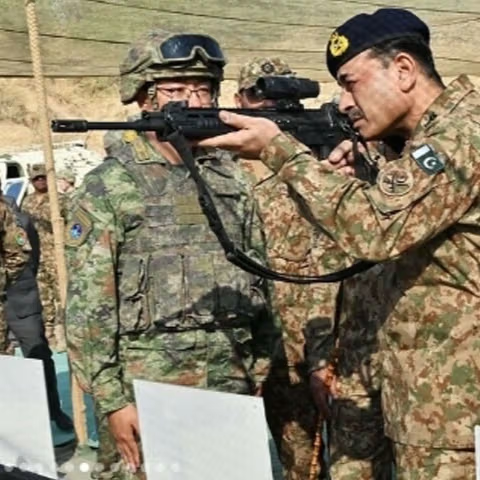He said Tehreek-e-Taliban Pakistan (TTP) and the Balochistan Liberation Army (BLA) are enemies of Pakistan, adding that anyone harbouring, abetting or financing them is not considered a friend and a well-wisher of Pakistan and its people.
Andarabi said promises made by the Afghan Taliban authorities have been hollow and unfulfilled. Has said that Pakistan regrets that the Taliban regime is constantly trying to misrepresent the issue of terrorists hiding in Afghanistan as a humanitarian issue.
He added that the Taliban administration is attempting to portray TTP and the BLA as Afghan refugees.
According to Andarabi, some elements within the Afghan Taliban do not seek confrontation with Pakistan, but there is a “strong lobby,” allegedly supported by foreign actors, that aims to “stoke tensions.” He said these elements have engaged in abuses and “outrageous allegations” against Pakistan, eroding whatever goodwill they once had.
He said certain figures in the Taliban are also trying to “instigate Pashtun nationalism in Pakistan.”
Andarabi added that, with the “sharp rise in evidence-based terrorism” originating from Afghanistan since the US withdrawal in 2021, the Taliban can neither deny the reality nor evade responsibility.
He said Pakistan remains committed to resolving bilateral issues through dialogue, but stressed that terrorism emanating from Afghanistan must be addressed “first and foremost.”
Andarabi said terrorist attacks inside Pakistan originating from Afghan territory have increased sharply. He said Pakistan had expected the “Taliban regime” to take action against the TTP.
He said the Taliban claim to control the entire country but “show their inability” when it comes to addressing terrorism originating from Afghan soil.
He stressed that Pakistan has exercised restraint for years despite military and civilian losses and has not escalated tensions. He said Pakistan granted several trade concessions to Afghanistan, but Islamabad’s support “was not reciprocated.” He added that trade and transit with Afghanistan will now only be possible if the Taliban authorities take “clear and concrete steps” against terrorism.
Andarabi said Pakistan has tried in recent years to maintain positive engagement with the Taliban administration. He said taking action against terrorism is the Taliban’s responsibility, and that Pakistan will take all necessary measures to protect its citizens.
Pakistan and the Taliban have held three rounds of negotiations in recent weeks. The first round, held in Doha, produced a temporary ceasefire. The second and third rounds in Istanbul ended without progress.
Pakistan’s Defence Minister Khawaja Asif said the Istanbul talks had reached a “complete deadlock” and that no further round is planned. He said Pakistan’s return “empty-handed” shows that even mediators “no longer have hope in the Afghan Taliban.”
Taliban spokesperson Zabihullah Mujahid later confirmed the failure of the Istanbul talks. In a post on X on Saturday, he wrote that the discussions produced “no results” and added that the Taliban administration “will not allow anyone to use Afghan territory against another country.”

